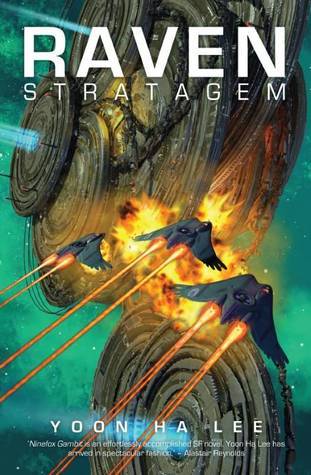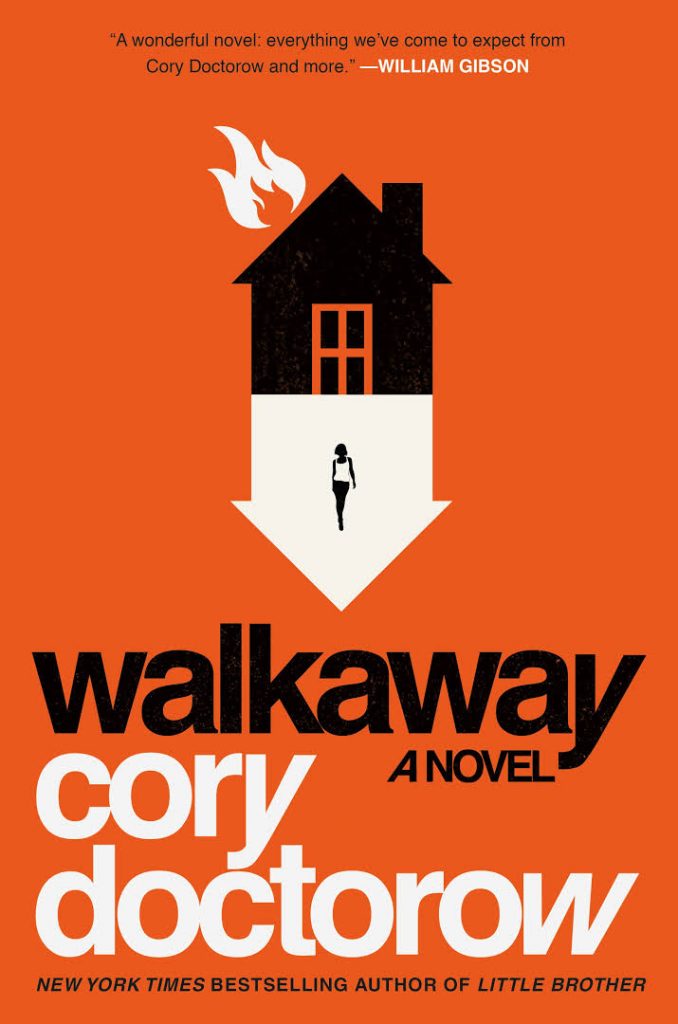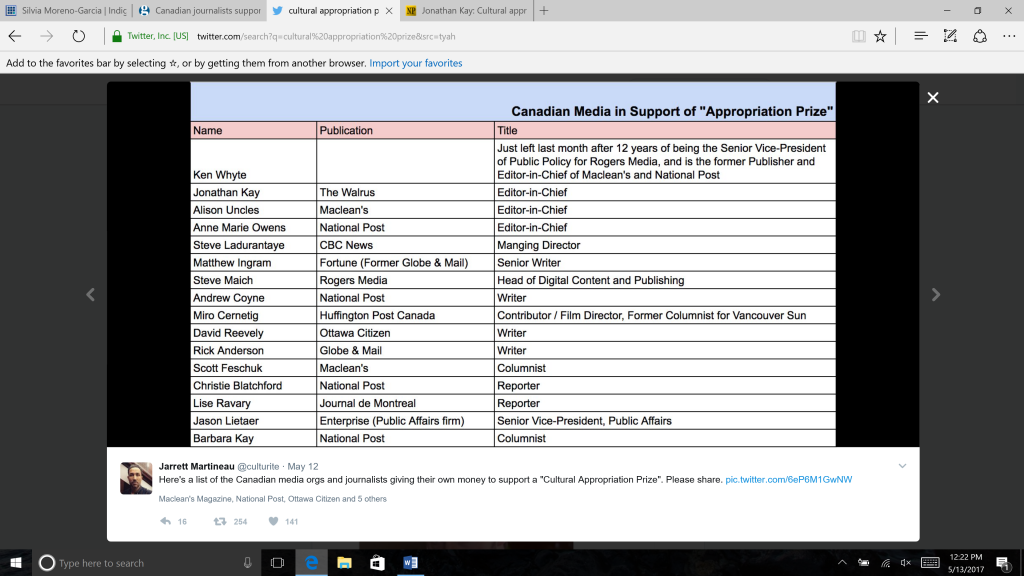(1) BUM OF THE MONTH CLUB. The time is ripe for “The Official Pornokitsch Taxonomy of Villains”.
So we’ve been at this Villain of the Month thing for a while now — since August 2016, to be precise — and by this point we’ve accumulated an interesting roster of villains….
First up, we have the True Believer (the Operative, Dolores Umbridge). True Believers have a cause to which they are faithfully devoted. That’s not to say they lack other ambitions — wealth, for example, or glory — but those take a back seat to one all-important ideological goal. For the Operative, that goal is creating “a world without sin”. For Umbridge, it’s a fascist regime ruled by the Ministry of Magic. Villains who obsequiously serve a Dark Lord (e.g. Bellatrix Lestrange) or fight to preserve the existing order (e.g. Agent Smith) would also fall into this category. For me, the most interesting True Believers are those fighting for a cause the audience could nominally get behind (e.g. the aforementioned world without sin), but whose methods are beyond the pale….
(2) MISSING THE APOCALYPSE. “Yeah, why DON’T authors deal with climate change??? <rolleyes>,” wrote JJ after seeing Tobias Buckell, Daniel Abraham and some other sff authors on Twitter get a little peeved because Publishers Weekly touted an article by Siddhartha Deb in The Baffler that said only nonfiction writers seemed to be dealing with it.
Such are the absurdities of the fossil-fuel lifestyle we are locked into globally, folly piling upon folly, the latest among them the decision by the United States to pull out of a Paris Climate Agreement that itself is like a band-aid applied to an earthquake. (Its target is to limit the global rise in temperature to between 1.5 and 2 degrees centigrade but, since it comes into effect only in 2020, it is seen by many critics as putting such a target beyond reach.) Yet in spite of all the evidence of the destruction visited upon the world by our resource-heavy appetites, accompanied by a gnawing recognition that something is fundamentally wrong in our relationship with the Earth and in the way we live, and all the cumulative knowledge about climate change and the irreplicable characteristics of an era that some have named the Anthropocene, the end result is still a kind of imaginative fatigue.
This makes itself evident in the paucity of fiction devoted to the carbon economy, something the Brooklyn-based Indian writer Amitav Ghosh addresses in his marvelous recent book, The Great Derangement, writing, “When the subject of climate change occurs . . . it is almost always in relation to nonfiction; novels and short stories are very rarely to be glimpsed within this horizon.”
(3) FAUX POP CULTURE. The Book Smugglers reminds all that Yoon Ha Lee’s Raven Stratagem comes out next week with this guest post from the author, “You Were Watching What on TV, Cheris?”
One of the most entertaining things I’ve gotten to do in the background worldbuilding for the hexarchate is its popular culture. For example, in Ninefox Gambit, my heroine Cheris spends her free time watching crackalicious TV shows (“dramas”). In Raven Stratagem, one of the Kel recalls a classmate who used to read trashy adventures involving “dungeon-crawling” in the bowels of the campus. And it also reveals that Jedao’s mom used to like reading equally trashy sci-fi novels involving survivalists and tentacled monsters from outer space. Just because she’s a science fantasy character doesn’t mean she can’t like sci-fi, right?
(4) INDIGENOUS VOICES. Silvia Moreno-Garcia and Robin Parker have succeeded in creating the Emerging Indigenous Voices Awards, which is now hosted by the Indigenous Literary Studies Association. And the ILSA has announced the award judges. (No excerpt, because the news item is one big image file — not text!) ILSA has set a funding target of $150,000 to”make the award sustainable for many years to come.” As of this writing, the Indiegogo appeal has raised $109,298 (Canadian). [H/T to Earl Grey Editing.]
(5) TIPTREE FELLOWSHIP REPORTS. The two 2016 Tiptree Fellowship winners have reported on how their work has been facilitated by the fellowships. [H/T to Earl Grey Editing.]
First on Porpentine Charity Heartscape’s list:
Here’s what I’ve been up to since I got the Tiptree fellowship. I made Miniskirt World Network: Business Slut Online, a video/music hypertext about a femme vaporwave world where fashion is a basic computer peripheral. I wanted to evoke the contradictory tensions of feminine-coded clothing and the weird emotional textures that come with it.
Mia Sereno (Likhain) explains:
I cannot separate my being Filipino, of the Philippines, from my being a woman; they are inextricably intertwined. Thanks to the Tiptree Fellowship I was able to examine this intertwining more closely through my art. Life has not been easy this past year and between trying to keep my household afloat and taking care of my own health, I’ve had less time than I would have liked to work on my art series built around the concept of Filipinas as monsters, monstrosity reclaimed and embraced. Still, I’d like to share with you some work-in-progress pencils and concept sketches featuring both high fantasy settings and the supernatural as the second skin of our everyday.
(6) THIS LAND IS YOUR LAND. The Wombat Conservancy, Winery, and Writer’s Retreat — a hilarious conversation on Twitter.
I don't think I can Kickstart "buy me 200 acres of woods so I can just not do anything to it for years!"
— Kingfisher & Wombat (@UrsulaV) June 7, 2017
To reach the beginning, JJ advises, “You have to keep scrolling up until you get to the top (land for sale listings).”
(7) RARE POWER. ScreenRant tells you what they think is the “Wonder Woman Movie’s Most Important Scene”. But I will excerpt a less spoilery part of the article.
By now most superhero fans with an eye for gender representation will have noticed a discrepancy between males and females with superpowers in comic movies, fantasy, science fiction, etc., etc.. Where the men either immediately or eventually see their superpowers as a gift, and the testing and mastery of the powers as a thrilling ‘coming of age’ story (or montage), women face a different road ahead. Often, the surfacing of a latent or new superpower is treated as an illness: something to hide, remove, control, or at the very least suspect as a problem to be solved (no matter how cool those superpowers may be). For every ‘Professor X’ there is a Jean Grey, for every Flash there is a Killer Frost, for every super-fast Quicksilver, there is a mentally-traumatized Scarlet ‘Witch.’
It’s a gender difference that means men will typically exert power by hitting things, while women are given powers rendering them unpredictable, mentally unstable, or simply tied to forces from an ‘unknown, mystical, potentially harmful’ source. But with Wonder Woman, Diana’s discovery of her ability to punch straight through stone is treated as the world-altering, empowering, and thrilling gift the viewers would take it to be. After smashing her hand through the stone in a frantic fall, Diana deduces that she is stronger than any Amazon before her
(8) NEBULA SHOWCASE. Don’t forget the Nebula Awards Showcase 2017 edited by Julie Czerneda.
The Nebula Awards Showcase volumes have been published annually since 1966, reprinting the winning and nominated stories of the Nebula Awards, voted on by the members of the Science Fiction and Fantasy Writers of America (SFWA). This year’s editor, selected by SFWA’s anthology Committee (chaired by Mike Resnick), is Canadian science fiction and fantasy writer and editor Julie Czerneda. This year’s Nebula Award winners are Naomi Novik, Nnedi Okorafor, Sarah Pinsker, and Alyssa Wong, with Fran Wilde winning the Andre Norton Award for Young Adult Science Fiction and Fantasy Book. Also included in this volume are works by N. K. Jemisin and Ann Leckie.
(9) ON THE ROAD. I laughed.
They have a point @DashStarWars pic.twitter.com/jbx5roWcdG
— Bryan (@Kaelten) August 23, 2016
(10) TODAY IN HISTORY REDUX
- June 8, 1949 — George Orwell published his most significant book, 1984. (You may be pardoned for thinking there’s an echo around here.)
- June 8, 1984 — Ghostbusters is released in theaters across the United States.
(11) TODAY’S BIRTHDAY BOY
- June 8, 1910 — John W. Campbell, Jr
(12) BRYANT MEMORIAL. George R.R. Martin tells about attending the memorial service for Ed Bryant in “Saying Farewell”.
Ed was a talented writer and a great workshopper, who mentored and encouraged many writers younger than himself and helped them on their way. He was one of my Wild Cards authors, creator of Sewer Jack and Wyungare. But most of all he was a sweet, kind man, with a warm smile and a gentle wit. Science fiction and fantasy will be poorer without him. Memorials like this are not for the deceased so much as they are for those left behind, I believe. It was good to get together with so many others who cared about Ed, and to share our memories of him, with laughter and love.
(13) TURNABOUT. Queen Idia’s Africa: Ten Short Stories by Cordelia Salter was released May 11.
Africa is rich and the West is poor. That’s the setting for Queen Idia’s Africa: Ten Short Stories by Cordelia Salter with a foreword by Zeinab Badawi.
This is a world where slavery and colonialism never happened and Africa is the rich global superpower.
The West is mired in poverty, politically unstable and relies on aid from Africa. Zeinab Badawi, Chair of the Royal African Society, points out in the foreword that the stories make us think what things could have been like if the boot had been on the other foot.
What would Africa do about swarms of illegal European migrants trying to get to Africa in search of a better life? How would Africa respond to droughts, famines and rebel warfare in North America? Could there have been apartheid the other way round?
(14) SHE, THE JURY. Naomi Alderman, whose sf novel The Power just won the Baileys Prize for Women’s Fiction, has been added to the jury for the The Royal Society Insight Investment Science Book Prize.
Alderman will be one of five judges, chaired by award-winning writer and television presenter, palaeontologist and Royal Society Fellow, Richard Fortey. They are joined by: writer and presenter of BBC Radio 4’s All in the Mind, Claudia Hammond, Channel 4’s Topical Specialist Factual Commissioner, Shaminder Nahal and former Royal Society University Research Fellow, Sam Gilbert.
The Prize has worked with many eminent judges over its illustrious 30-year history, among them Ian McEwan, Sarah Waters, Terry Pratchett, David Attenborough, Tracy Chevalier and Michael Frayn.
The Prize celebrates outstanding popular science books from around the world and is open to authors of science books written for a non-specialist audience. Over the decades, it has championed writers such as Stephen Hawking, Jared Diamond, Stephen Jay Gould and Bill Bryson.
Naomi Alderman commented: “It’s a terrible shame that arts and sciences are so often seen as mutually opposed, and that there’s so little understanding of what makes great work in ‘the other’ culture. So many of the most urgent problems that face us today can only be solved by thinking in an interdisciplinary way. That’s why I’m particularly thrilled to be a judge of this Prize, where we’ll be looking both for great science and excellent writing and storytelling. There’s no reason that a science book can’t be a bloody good read, and I can’t wait to get stuck in, and to discuss the best new science writing with the other judges.”
(15) ILLEGAL ESPIONAGE. In Section 31: Control, frequent Star Trek novelist David Mack takes on Starfleet’s secretive, rogue agency. Dr. Bashir, as he was in Deep Space Nine episodes involving Section 31, is the chief protagonist.
No law…no conscience…no mercy. Amoral, shrouded in secrecy, and answering to no one, Section 31 is the mysterious covert operations division of Starfleet, a rogue shadow group pledged to defend the Federation at any cost.
The discovery of a two-hundred-year-old secret gives Doctor Julian Bashir his best chance yet to expose and destroy the illegal spy organization. But his foes won’t go down without a fight, and his mission to protect the Federation he loves just end up triggering its destruction.
Only one thing is for certain: this time, the price of victory will be paid with Bashir’s dearest blood.
(16) TOASTY. A “heat battery” in use in real world: “From hand-warmer to house-warmer for tech firm”.
It took a creative leap to take the idea further: could you scale up the phase change process so a hand-warmer became a house-warmer?
Several big corporations – over several decades – tried to make it happen but each time the research petered out.
Now an East Lothian company with fewer than 30 employees has succeeded.
The equipment Sunamp have developed at their base in Macmerry has already been installed in 650 Scottish homes, providing heat and hot water for about half the cost of gas.
(17) HAWKING MEDAL. Space.com reports “Neil deGrasse Tyson Becomes 1st American to Receive Stephen Hawking Medal”.
Astrophysicist Neil deGrasse Tyson received the Stephen Hawking Medal for Science Communication Tuesday (June 6), becoming the first American scientist to earn the prestigious award.
Tyson, who refers to himself as “your personal astrophysicist,” is most known for his television series “Cosmos: A Spacetime Odyssey” and podcast-turned-television-series “StarTalk.” He is the director for the Hayden Planetarium at the American Museum of Natural History here in New York City, where Tuesday’s announcement was made.
The Stephen Hawking Medal is an annual award created in association with the Starmus Festival, an international gathering celebrating science and art that will take place in Trondheim, Norway, on June 18-23 this year. Medals are given to science communicators in three categories: writers, musicians and artists, and people in the film and entertainment industry. Hawking, a famous theoretical physicist and author of several best-selling books about the universe, handpicks the recipients himself. [The Most Famous Astronomers of All Time]
(18) WHEN MEN WERE MEN AND DINOS WERE FROGS. Looking for a Father’s Day present? How about this “ORIGINAL JURASSIC PARK Screenplay SPECIAL Copy”, asking price (reduced 30%!) now $2,450 on eBay.
[JURASSIC PARK – THE FILM]. CRICHTON, MICHAEL, DAVID KOEPP. Original Limited and Numbered Confidential Shooting Script for the Film ‘Jurassic Park’ by David Koep. Based on the Novel by Michael Crichton and on Adaptations by Michael Crichton and Malia Scotch Marmo. Los Angeles: Amblin Entertainment, 1992. Original limited and numbered copy of a 126 page shooting script with color rewrite pages for the film ‘Jurassic Park’ by David Koep, based on the novel by Michael Crichton and on adaptations by Michael Crichton and Malia Scotch Marmo. A special printed page at the beginning reads: “HIGHLY CONFIDENTIAL – You are a part of a very limited distribution. This numbered copy of JURASSIC PARK has been assigned to you and is for your eyes only.” next to which “JP” and “64” are stamped in red and throughout the script. This copy belonged to the film’s safety coordinator
(19) MARKET OVERVIEW. David Steffen’s “SFWA Market Report for June” at the SFWA Blog includes these opening markets.
OPENING MARKETS
(20) NOT THAT ANYONE WOULD REMEMBER. Chris Chan continues his Orwellian remaking of recent fanhistory in “‘No Award’: The Hugo Awards, Sad Puppies, and Sci-Fi/Fantasy Literature — Part Two: A Short History of the Sad Puppies at the Hugos” at Nerd HQ.
The results of the 2015 experiment were dramatic and explosive. The recommendations of the Sad Puppies (and also those put forward by the Rabid Puppies) dominated the 2015 Hugo Nominations. John C. Wright received five nominations in three categories (he initially was awarded a sixth slot, but one was revoked on a technicality). The Hugo nominee list changed over the coming weeks. Aside from the aforementioned instance, some nominees chose to decline their nomination (Hugo nominees have this option and can decline for any reason they like — some original nominees did not approve of the Sad or Rabid Puppies and did not wish to have any connection with them, and others objected that they believed that the voting process was being corrupted), and the slots were then filled by the runners-up. Incidentally, Correia’s Monster Hunter Nemesis received enough votes to qualify for a Best Novel nomination, but he turned down the nod to make the point that Sad Puppies was not being organized in order to receive honors for himself.
And yet that’s exactly why Correia started down this road — see the first post in 2013, “How to get Correia nominated for a Hugo. :)”, and the follow-up post that initiated the Sad Puppies theme, “How to get Correia nominated for a Hugo PART 2: A VERY SPECIAL MESSAGE”. There was really nothing noble about it, in the beginning or later.
(21) THERE ARE TWO KINDS OF PEOPLE. Jon Del Arroz, after studying the wildlife in its native habitat, offers his “Behavioral Observations In Science Fiction”.
There’s two groups, the old guard burnout mentality, and the new indie pulp revolution. There’s a bit of a line up along political lines, but not as much as you’d expect, and in fact, that’s used as an excuse a lot of the time to poo poo the new. This is the state of science fiction today. I’ve talked about it briefly before, but here’s a broader look at the experiences I’ve had after engaging with both.
Old Guard
You walk into social media, or a group, or a convention of what I called the “old guard”, they’e hesitant. They’re the type to complain that they’re introverts, having to recharge after social interactions (which is fine to be, but knowing that — why complain so often?). A new person is immediately greeted with a stand-offish attitude, like they have to vet you to make sure you’re “really one of them” or that you have to pay your dues to prove yourself somehow. They’re hyper-political. If you look at their social media posts, 70-90% of them are endless shrieking about politics they don’t like. They keep talking about how they’re too busy for anyone or anything — including the next generation of fans and writers. And this is all before they know that you’re on the “wrongthink” side of politics.
(22) WE INTERRUPT THIS PROGRAM. The Coode Street Podcast will take a couple of breaks this year. The announcement provoked this hilarious exchange.
The Coode Street Podcast will be on hiatus from 1-31 August 2017 and from 15 November 2017 to 15 January 2018.
— Reeling from the year… (@JonathanStrahan) June 8, 2017
Yeeeeeeeeeeeeeeeeeeeeeeeeeeeeeeeeeeeeeeeeeeeeeeeeeeeeeeeeeeeeeeeeeeeeeeeeeeeeeeeeeeeeeeeeeeeeeeeeeeeeeeeeeeeeeeeeeeeeeeeeeeeeeeeeeeeeeeeees!
— Reeling from the year… (@JonathanStrahan) June 8, 2017
The legends of Coode Street will be passed down from generation to generation, and the void known as the hiatus will be mourned.
— Reeling from the year… (@JonathanStrahan) June 8, 2017
You are dead to me.
— Reeling from the year… (@JonathanStrahan) June 8, 2017
(23) ALTERNATE REALITY HUMOR. It might be too late for this to be funny — Loki Runs For President, a video from last November. (Was it funny then? It’s basically somebody talking a mile a minute over scans of a comic book.)
(24) APE CLIP. Two minutes of War for the Planet of the Apes about “Meeting Nova.”
She is the future. Meet Nova in the first clip from #WarForThePlanet and be the first to #WitnessTheEnd on Monday, June 19
[Thanks to JJ, Chip Hitchcock, John King Tarpinian, Earl Grey Editing, and Carl Slaughter for some of these stories. Title credit goes to File 770 contributing editor the day Oneiros.]




